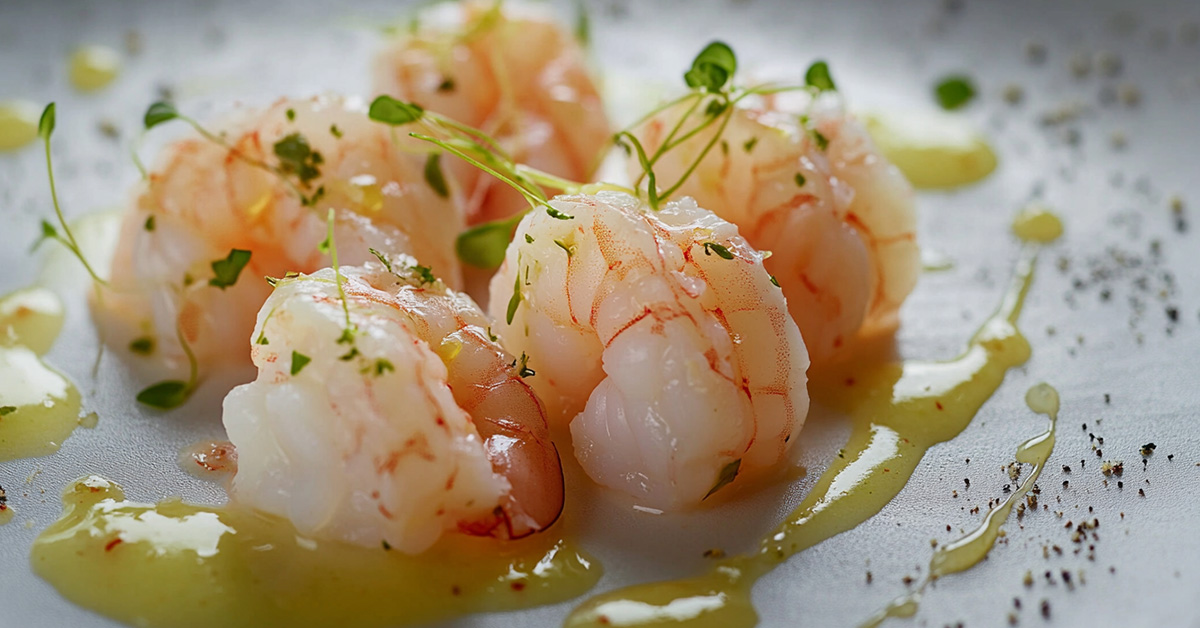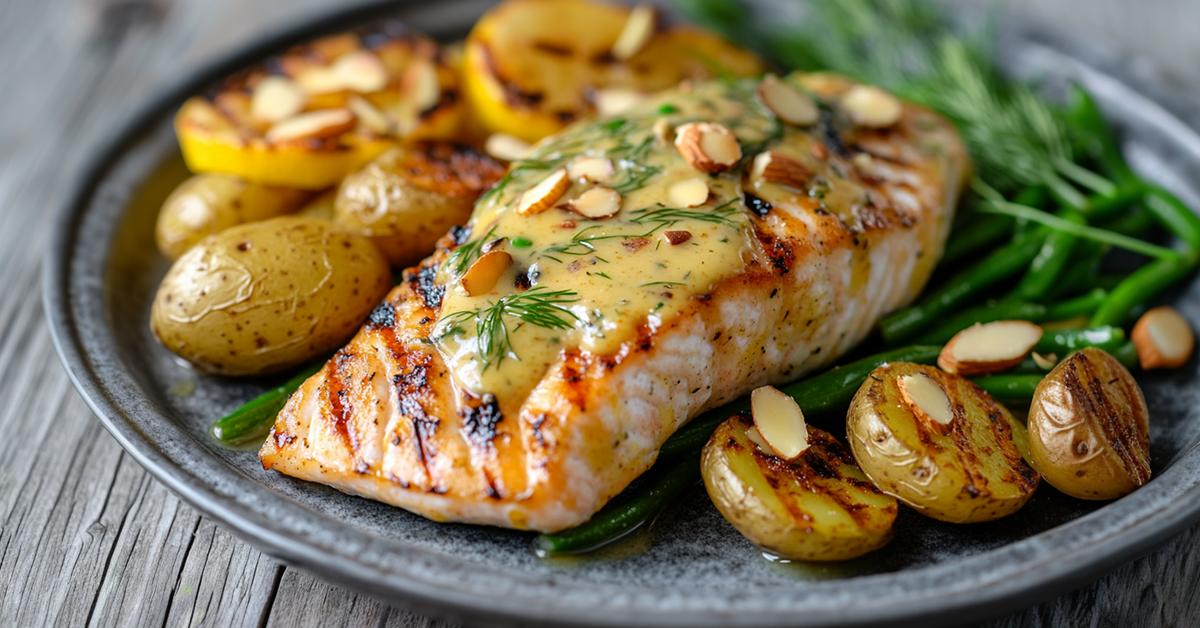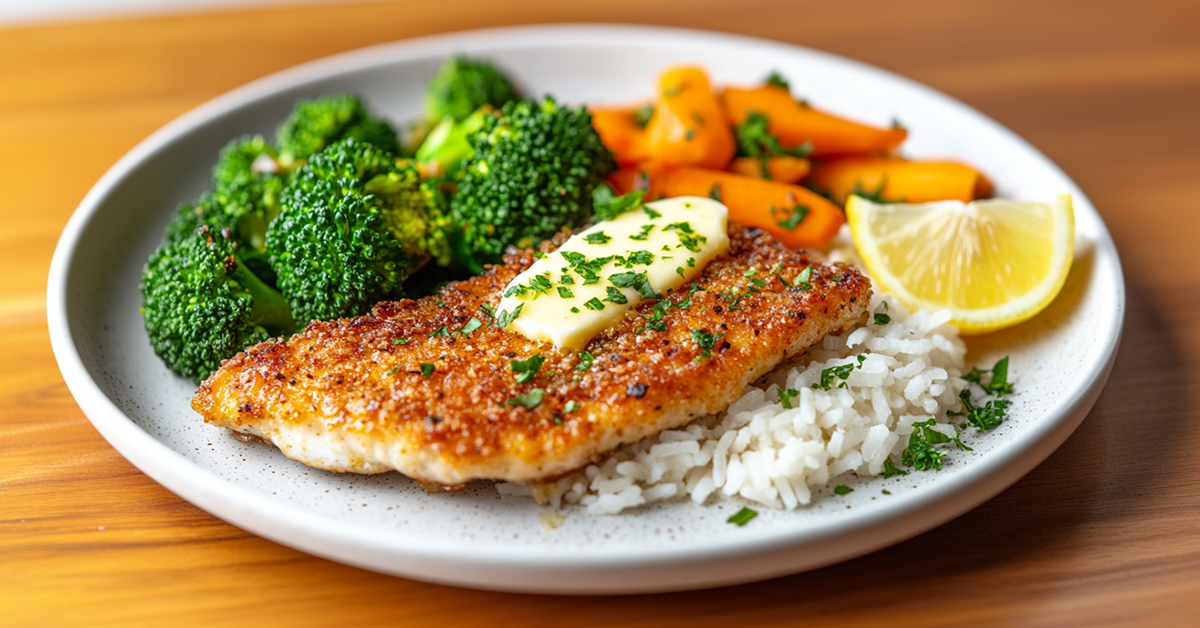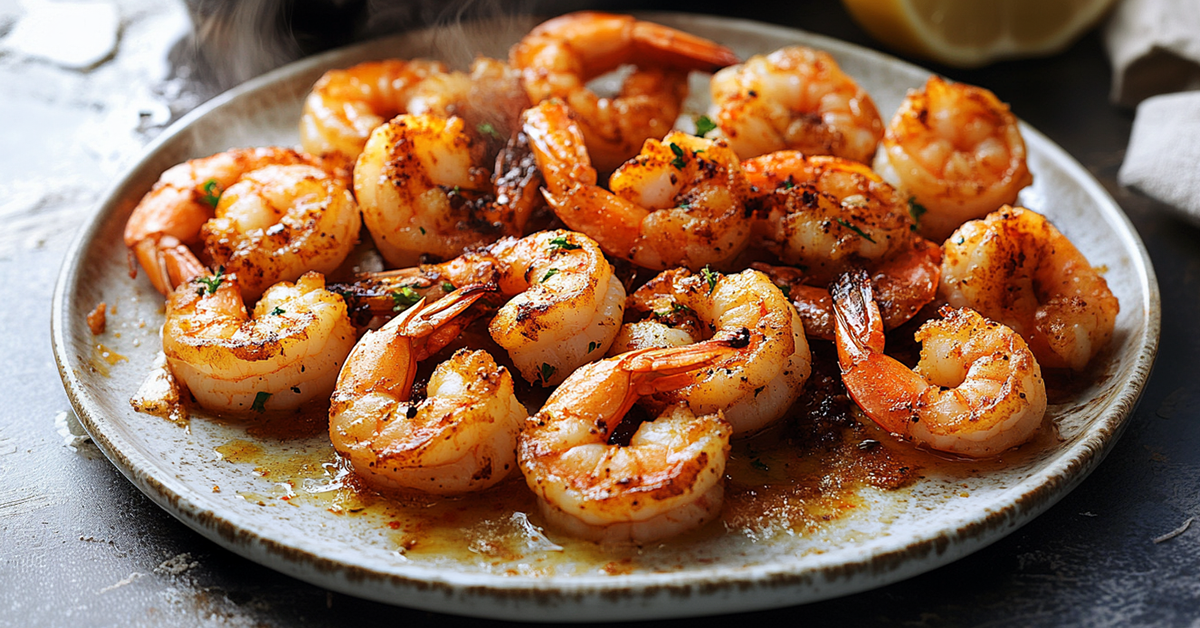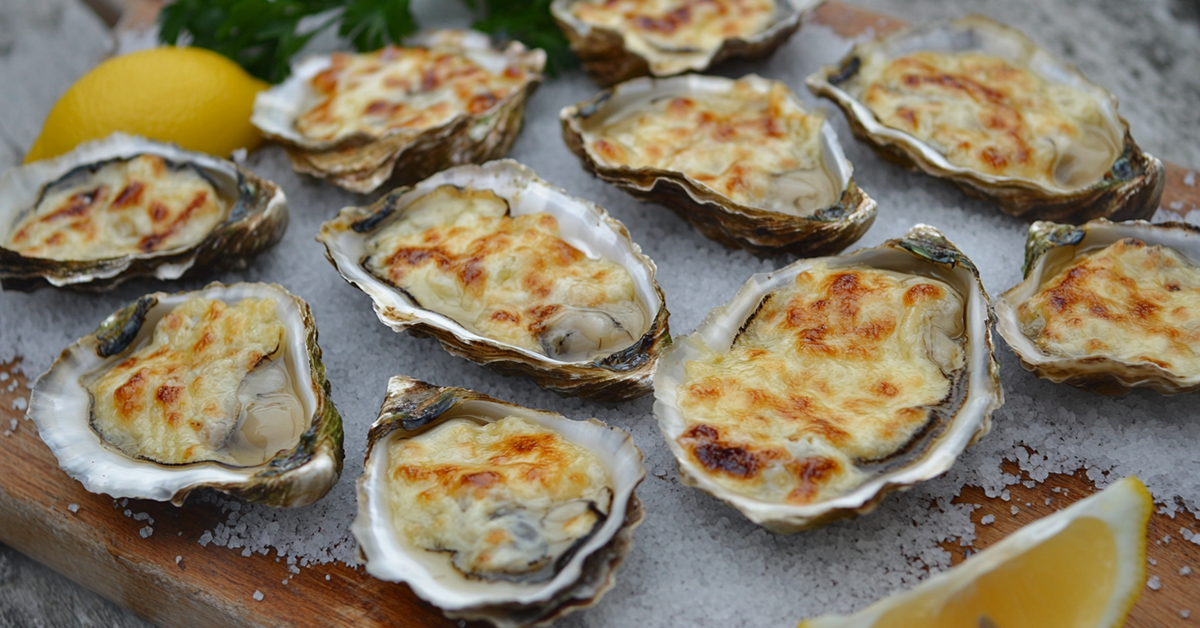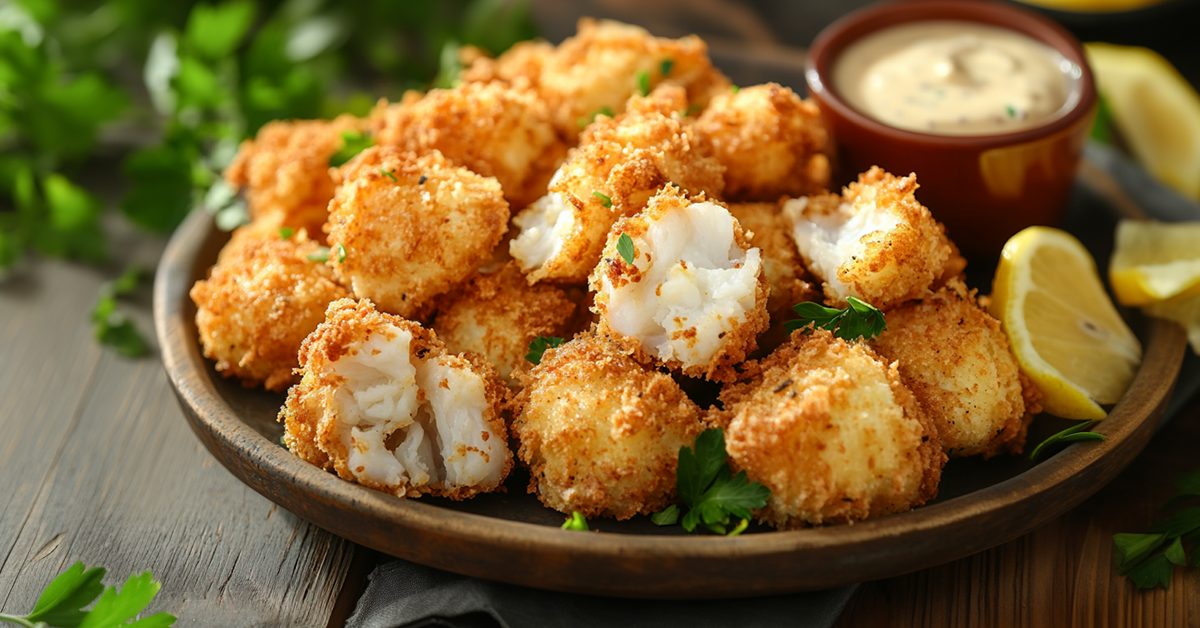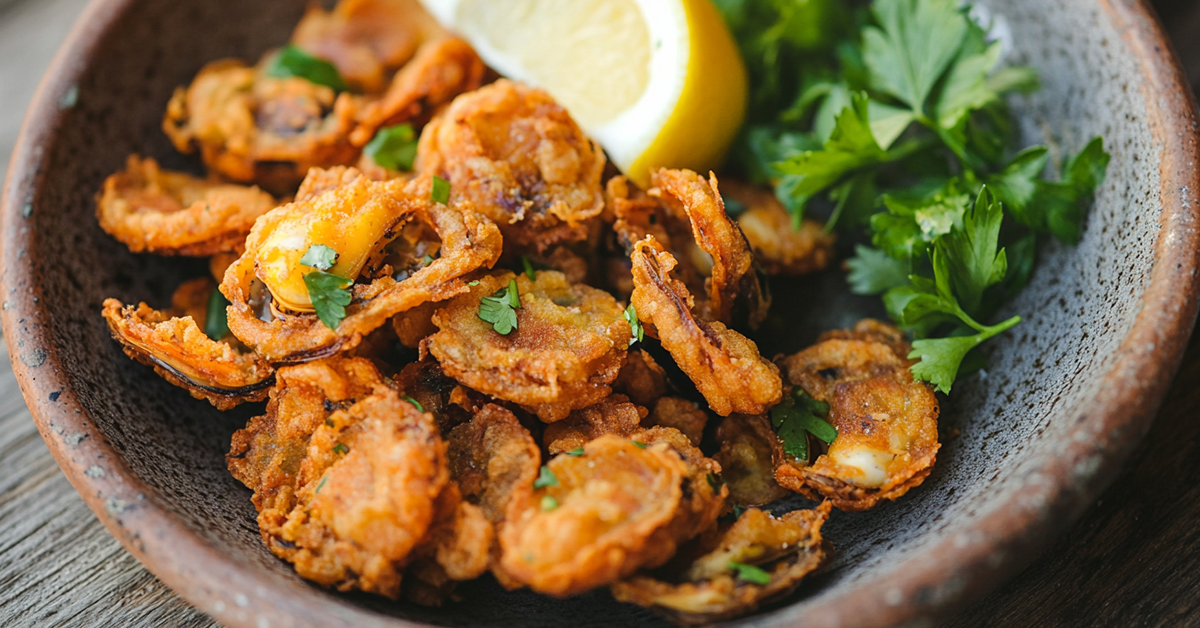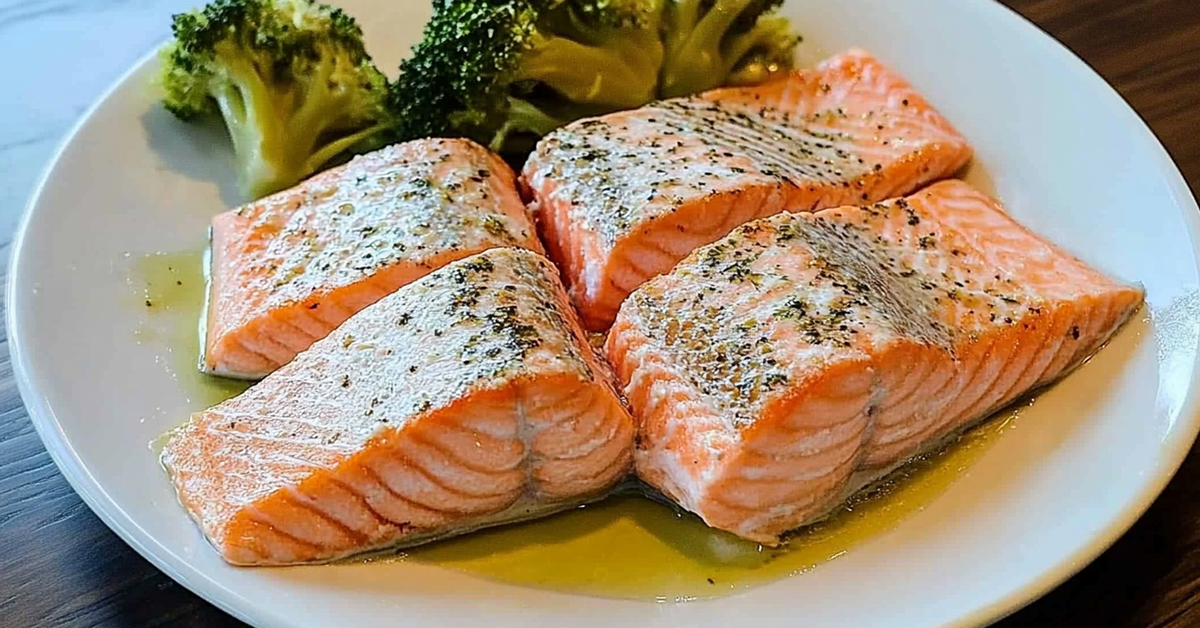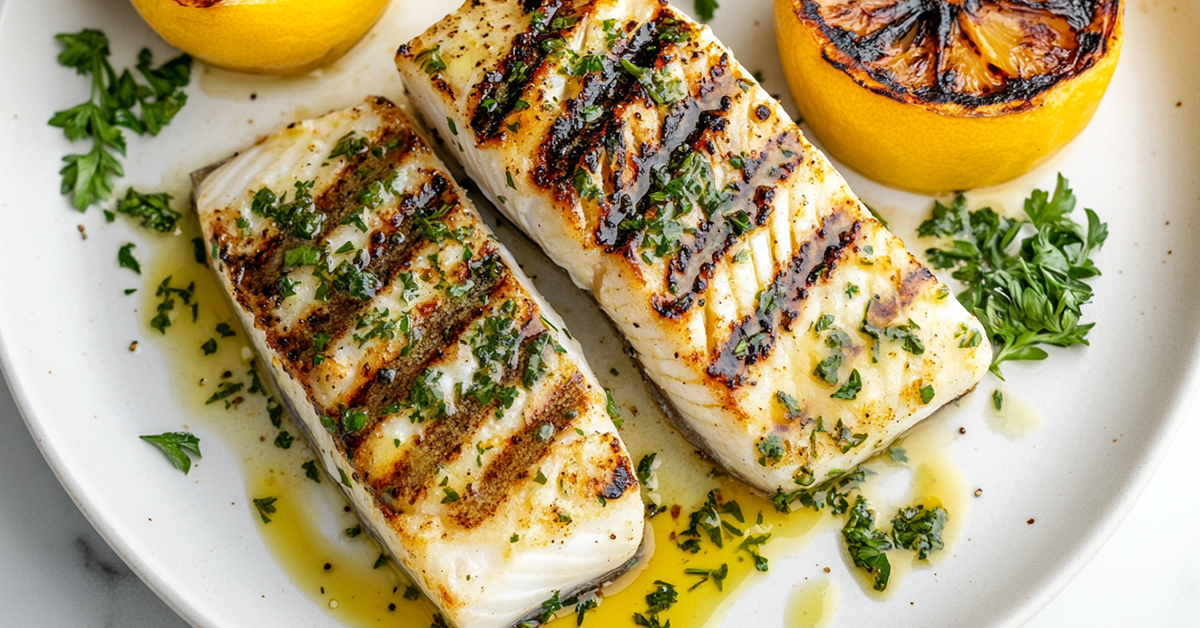Cooking shrimp requires perfect timing. One extra minute can turn them rubbery and tough. Sous vide shrimp solves this problem and gives you perfect results consistently.
Your seafood will reach the exact temperature needed when you use the sous vide method. The technique works great for quick weeknight meals or fancy dinner parties. Once you become skilled at cooking sous vide shrimp, your culinary skills will improve significantly. You can try different temperature settings to get your ideal texture.
This piece covers everything about sous vide shrimp cooking. You’ll find details about equipment, seasoning tips, temperature control, and serving ideas. These tips will help you make restaurant-quality shrimp dishes in your kitchen.
Table of Contents
Why Choose Sous Vide Shrimp?
Precision makes all the difference in cooking shrimp. Sous vide cooking is a great way to get restaurant-quality results, and you should try it.
The extended cooking window stands out as the main advantage. Traditional methods demand perfect timing, but sous vide gives you a generous 30-minute window to achieve ideal results. You won’t need to watch the clock or worry about overcooked, rubbery shrimp anymore.
Here’s what makes sous vide shrimp stand out:
- Perfect texture every time: The precise temperature control prevents the dreaded rubbery texture that often comes with overcooked shrimp.
- Better flavor profile: Your shrimp taste extra-shrimpy and flavorful without needing additional seasonings.
- Consistent results: Each piece cooks evenly, which eliminates the risk of uneven cooking.
- Convenient cooking: The water bath needs minimal attention, so you can focus on other meal preparations.
Read also: Fried Fish and Shrimp Recipe
This method’s flexibility will amaze you. Fresh shrimp need about 15 minutes of cooking time. Frozen shrimp require 35 minutes at the same temperature. You can cook straight from frozen without compromising quality.
Sous vide shrimp’s magic comes from its flavor infusion during cooking. The sealed environment lets shrimp marinate in their own juices with your chosen seasonings. You won’t need extra fats or oils to achieve delicious results, making this a healthier option.
Temperature control becomes your secret weapon. The water bath maintains the exact temperature setting, ensuring your shrimp reach the perfect internal temperature of 145°F (63°C). This precision helps since shrimp cook quickly and can become tough with traditional methods.
Sous vide has become more available to home cooks. What started as a restaurant technique is now a practical option for your kitchen, thanks to affordable sous vide cookers. You can create professional-quality shrimp dishes consistently without stressing about timing or monitoring.
Read also: Ama Ebi Recipe (Sweet Shrimp Japanese Dish)
Essential Equipment for Cooking Sous Vide Shrimp
Let’s begin a journey into sous vide shrimp cooking. You’ll need some simple equipment to create perfect results.
An immersion circulator stands out as your most important piece of equipment. This device keeps water at the right temperature and will give a consistent heat throughout your cooking process. It’s your setup’s centerpiece with a digital display that shows and controls temperature precisely.
Here’s your essential equipment checklist:
- Immersion Circulator: Controls water temperature precisely.
- Large Container: Can be a stockpot, Dutch oven, or specialized sous vide container.
- Sealing Equipment: Either a vacuum sealer or heavy-duty zip-top bags.
- Binder Clips: To keep bags in place during cooking.
- Thermometer: For verifying water temperature.
You have two reliable options to seal your shrimp. A vacuum sealer creates an airtight environment that’s perfect for sous vide cooking. The water displacement method with zip-top freezer bags offers a budget-friendly alternative. Water pressure forces air out of the bag before sealing.
Your cooking container doesn’t need to be fancy. A large pot or heat-resistant tub works great, though specialized sous vide containers are accessible to more people. Regular users might want a container with a custom-cut lid that reduces water evaporation during longer cooking sessions.
Temperature monitoring plays a vital part in perfect results. Your immersion circulator’s built-in temperature controls work well, but a separate thermometer adds extra accuracy. Pick one with a thin probe that won’t break your bag’s seal.
Newcomers to sous vide cooking will be happy to know that starting out doesn’t cost much. An immersion circulator and a large pot are enough to make restaurant-quality shrimp dishes. You can add specialized equipment to your kitchen collection as you become more comfortable with the technique.
It’s worth mentioning that vacuum-sealed bags can keep food fresh up to five times longer than regular storage methods. This becomes especially valuable if you buy shrimp in bulk or prepare meals ahead of time.
You may like: Sous Vide Halibut Recipe
How to Season Sous Vide Shrimp for Maximum Flavor
Magic happens when you season shrimp for sous vide cooking. The sealed environment lets flavors deeply infuse into your shrimp during cooking.
Sous vide shrimp taste naturally flavorful with minimal seasoning. Your shrimp will shine even without extra ingredients. The technique gives you endless ways to create flavor-packed dishes.
These seasoning combinations work great:
- Mediterranean Style: Olive oil, garlic, fresh herbs (thyme, oregano, parsley).
- Spanish Twist: Extra-virgin olive oil, sliced garlic, smoked paprika, sherry.
- Asian Fusion: Sesame oil, ginger, scallions, soy sauce.
- Classic Butter: Fresh garlic, butter, parsley.
A pro tip suggests tossing fresh shrimp with baking soda before other seasonings. This creates a firmer, snappier texture. You’ll need to add seasonings after cooking if using pre-sealed shrimp.
Timing matters with seasonings. Mix your chosen aromatics in the bag before cooking fresh shrimp. This lets flavors infuse while cooking. Warm garlic and olive oil together until the garlic softens to release more flavor into your dish.
Don’t worry about missing out on flavor with frozen pre-sealed shrimp. You can add flavoring ingredients right after cooking finishes. A simple squeeze of fresh lemon juice makes a big difference.
You may like: Sous Vide Swordfish Recipe
Note that sous vide cooking makes flavors stronger, so start with less seasoning. You can always add more flavor after cooking. Make sure your seasonings spread evenly throughout the bag before sealing it.
Sous Vide Shrimp Temp and Timing Guide
Perfect sous vide shrimp depends on the right temperature and timing. You’ll need to become skilled at these technical aspects that ensure excellent results every time.
The sweet spot to cook shrimp sous vide falls between 125°F and 140°F (52-60°C). Different temperatures will affect your shrimp’s texture in unique ways:
Temperature Guide:
- 125°F (52°C): Creates translucent shrimp with a buttery, soft texture.
- 130°F (54°C): Results in nearly opaque shrimp with tender firmness.
- 135°F (57°C): Produces slightly opaque shrimp that’s moist and tender.
- 140°F (60°C): Gives you the traditional poached texture with a snappy bite.
Your timing matters just as much as temperature. Fresh shrimp needs 15 minutes to cook through. Frozen shrimp requires about 35 minutes at the same temperature.
Important Temperature Notes: Temperatures below 125°F will leave you with mushy shrimp, and anything above 140°F creates tough, rubbery texture. Food safety guidelines suggest an internal temperature of 145°F (63°C).
A pro tip: Sous vide offers flexibility with timing, but don’t leave your shrimp in the water bath longer than an hour. Extended cooking can make them too soft, especially shrimp with their heads still attached.
These timing guidelines will help you get the best results:
- Fresh shrimp: 15-30 minutes.
- Frozen shrimp: 35 minutes.
- Maximum bath time: Up to 1 hour.
Sous vide cooking gives you a generous 30-minute window where your shrimp maintains perfect texture. This extended cooking window makes the technique especially useful when you prepare multiple dishes or host guests.
Shrimp size affects your cooking time. Larger shrimp need extra minutes to cook through, while smaller ones cook faster. Your water bath should reach the target temperature before you add your sealed shrimp.
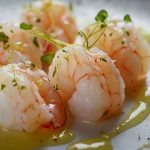
Sous Vide Shrimp Recipe
- Total Time: 40 minutes
- Yield: 4 servings 1x
Description
Want amazing shrimp every time? This sous vide shrimp recipe gives you tender, flavorful results that let you focus on the rest of your meal prep.
Garlic butter and sous vide cooking come together beautifully in this recipe. You’ll get restaurant-quality shrimp with minimal effort – perfect for busy weeknights or special occasions.
Ingredients
- 1½ pounds large shrimp, peeled and deveined.
- ½ teaspoon baking soda.
- Kosher salt.
- 4 tablespoons butter or extra virgin olive oil.
- 2–3 cloves fresh garlic, minced.
- Fresh herbs (optional): parsley, tarragon, or thyme.
- Lemon zest or 1 tablespoon lemon juice (optional).
Instructions
- Prepare the shrimp: Mix shrimp with kosher salt and baking soda. Let them sit for 30 minutes.
- Set up sous vide: Heat water bath to 135°F (57°C).
- Season and bag: Add shrimp to a vacuum-seal or zip-top bag with butter, garlic, and your herbs of choice.
- Seal the bag: Get rid of air using a vacuum sealer or water displacement method. Lay shrimp flat in one layer.
- Cook: Put the sealed bag in the water bath. Fresh shrimp need 15 minutes, frozen ones take 35 minutes.
- Finish: Serve right away hot, or chill to serve cold.
Notes
– Baking soda helps create a snappier texture.
– Shell-on shrimp need 5 extra minutes to cook.
– Keep cooking time under an hour to maintain texture.
– Water displacement works great for zip-top bags.
- Prep Time: 5 minutes
- Cook Time: 35 minutes
- Category: Seafood
- Method: Sous Vide
Your shrimp will come out perfectly cooked – tender and juicy in ways traditional cooking just can’t match. The sealed bag lets garlic butter flavors sink deep into each piece, giving you restaurant-quality results at home.
Serving Suggestions for Sous Vide Shrimp
Your perfectly cooked sous vide shrimp deserves a presentation that showcases its tender texture and rich flavor. Here’s how you can serve your shrimp like a pro, whether it’s a casual dinner or an elegant party.
A classic presentation starts with a chilled martini glass filled about ¼ with cocktail sauce. The shrimp should easily reach the sauce without touching. A bright lemon wedge adds both flavor and visual appeal.
Simple Yet Elegant Pairings:
- White wine and crusty bread.
- Fresh lemon wedges and cocktail sauce.
- Buttery rice or pasta.
- Garden-fresh salads.
You can create a substantial meal by tossing your sous vide shrimp with pasta or serving it over perfectly cooked jasmine rice. The shrimp’s versatility makes it perfect in everything from fresh summer salads to hearty risottos.
Ready to create a show-stopping Spanish-style dish? Let your shrimp sizzle hot in a cast iron skillet. The aromatic blend of garlic, sherry, and smoked paprika will fill the room. Make sure you have plenty of bread ready to soak up the delicious sauce!
Sweet corn and mushrooms make a refreshing summer pairing with your shrimp. Meaty shiitakes, summer-sweet corn, and zesty lime create a perfect seasonal plate. This combination works great as either a main course or a sophisticated side dish.
A shrimp cocktail station adds flair to your entertaining. Frozen margarita glasses bring an extra touch of elegance. Here’s a pro tip: if a shrimp won’t sit properly on the glass rim, create a small groove in it to ensure perfect presentation.
Sauce options to try:
- Classic cocktail sauce.
- Zesty remoulade.
- Lemon-caper sauce.
- Sriracha butter glaze.
Note that sous vide shrimp’s natural sweetness stands out beautifully. A simple squeeze of lemon or quality olive oil drizzle creates a memorable dish. Your sous vide shrimp will impress with its perfect texture at any occasion – from beach picnics with wine and peel-and-eat shrimp to elegant dinner parties.
Health Benefits of Eating Sous Vide Shrimp
Sous vide shrimp delivers perfect texture and flavor while packing impressive health benefits on your plate. The science behind this cooking method shows why health-conscious food lovers increasingly choose it.
Cooking shrimp sous vide preserves more nutrients than traditional methods. Research shows that sous vide cooking boosts structural stability and reduces nutrient loss. Your food retains essential vitamins and minerals in the sealed environment that would normally disappear during conventional cooking. [Reference]
Nutrient Preservation Benefits:
- Higher retention of moisture and crude protein.
- Better preservation of crude fat content.
- Boosted structural stability of muscle fibers.
- Improved preservation of flavor compounds.
The vacuum-sealed environment prevents oxidation and nutrient degradation, helping your sous vide shrimp maintain its rich nutritional profile. This becomes vital because shrimp naturally contains essential amino acids and long-chain omega-3 fatty acids, especially DHA and EPA that support brain development and heart health. [Reference]
Precise temperature control protects these valuable nutrients. You create the perfect environment between 54.4°C and 60°C to maintain nutritional integrity and ensure food safety. The gentle cooking process makes proteins more digestible by breaking down collagen into gelatin.
Sous vide cooking shines because you don’t need extra fats or oils. Traditional cooking requires additional fats to prevent sticking and add flavor, but sous vide naturally keeps moisture and flavor intact without these additions. You get fewer calories without compromising taste.
Your vacuum-sealed environment extends shelf life by stopping oxidation and preventing aerobic bacteria growth. This method helps maintain those beneficial omega-3 fatty acids longer.
Temperature control ensures food safety. The consistent temperature pasteurizes your sous vide shrimp and provides extra protection. You eliminate undercooking risks while keeping maximum nutritional value.
Health-conscious diners will love that sous vide shrimp keeps its natural flavors without extra seasonings or salt. The cooking process brings out the shrimp’s natural taste while protecting its nutritional value, making it a smart choice for healthy eating.
Nutrition Facts for Sous Vide Shrimp
Let’s talk about what nutrients you get from sous vide shrimp. This knowledge will help you make better food choices.
A single serving of sous vide shrimp (about 4 ounces) gives you between 208-263 calories. Here’s a breakdown of the main nutrients you get:
Main Nutritional Values (per serving):
- Protein: 17-40g
- Total Fat: 3-19g
- Carbohydrates: 3-5g
Your plate of sous vide shrimp packs a lot of essential nutrients that your body needs daily. These percentages show how much of your Daily Value (%DV) you get, based on a 2,000-calorie diet:
| Nutrient | Daily Value % |
|---|---|
| Cholesterol | 45-50% |
| Sodium | 10-15% |
| Calcium | 8-10% |
| Iron | 15-20% |
| Potassium | 6-8% |
Sous vide shrimp stands out as a protein powerhouse, giving you up to 40g per serving. This makes it perfect to build and maintain muscle. The fat content changes based on how you prepare it and what you add, ranging from a lean 3g to 19g per serving.
Your body gets good amounts of calcium (80-159mg) and potassium (184-298mg) from sous vide shrimp. The sous vide method keeps these minerals intact better than regular cooking.
The nutrients change based on your seasonings and extra ingredients. To name just one example, adding garlic butter bumps up the calories to about 263 per serving. A basic preparation keeps it lower at 208 calories.
The sodium content ranges from 1,006-1,972mg per serving, so keep an eye on this if you watch your salt intake. The amount varies based on your seasonings and whether you use pre-brined shrimp.
Read also: Sous Vide Cod with Lemon Butter Recipe
Conclusion
Sous vide cooking turns simple shrimp into a consistently perfect meal. This precise method gives you complete control over texture and flavor and preserves nutrients. Your shrimp turn out tender and flavorful every time. You can stick to a simple garlic butter preparation or try bold international seasonings.
A few pieces of simple equipment and careful temperature control deliver restaurant-quality results through sous vide. The right temperature settings and timing guidelines will help you learn this technique fast. Each perfectly cooked batch gives you protein, omega-3 fatty acids, and nutrients without needing much added fat.
Your attention to detail makes all the difference in achieving great results. Proper seasoning, precise temperature control, and careful timing are the foundations of success. These fundamentals will help you create impressive shrimp dishes that match any professional kitchen’s quality.

